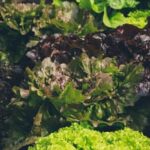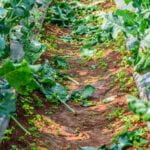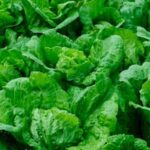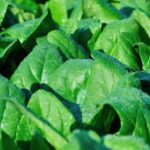Is mulch bad for vegetable gardens? This is a common question that arises among gardeners, often due to misconceptions about the potential negative effects of mulch. In this article, we will explore the importance of mulch in vegetable gardens and address the misunderstandings surrounding its use.
When it comes to cultivating a thriving vegetable garden, mulch plays a crucial role in maintaining soil health and promoting plant growth. However, there are misconceptions about the potential drawbacks of using mulch in vegetable gardens. It is important to understand the different types of mulch available and how best to utilize them to maximize their benefits while minimizing any potential negative effects.
Throughout this blog post, we will delve into the various types of mulch suitable for vegetable gardens, including organic and inorganic options. We will also discuss the benefits of using mulch, such as moisture retention, weed suppression, and soil temperature regulation. Additionally, we will address the potential drawbacks of mulch in vegetable gardens, including the risk of nutrient depletion and pest attraction. By understanding these factors, gardeners can make informed decisions about using mulch in their vegetable gardens.
Types of Mulch
When it comes to choosing the right mulch for your vegetable garden, there are several options to consider. From organic to inorganic choices, each type of mulch has its own set of benefits and considerations. Understanding the differences between these types of mulch can help you make an informed decision for your garden.
Organic Mulch
One popular option for vegetable gardens is organic mulch, which is made from natural materials such as straw, bark, leaves, or compost. Organic mulch not only helps retain moisture and regulate soil temperature but also adds nutrients to the soil as it breaks down. This type of mulch is a great choice for improving soil health and overall plant growth.
Inorganic Mulch
In contrast, inorganic mulch is typically made from materials like plastic or rubber. While it may not provide the same nutrient-rich benefits as organic mulch, inorganic mulch offers excellent weed suppression and moisture retention properties. It also has a longer lifespan compared to organic options, making it a low-maintenance choice for vegetable gardens.
When considering the type of mulch to use in your vegetable garden, it’s important to weigh the pros and cons of each option and consider the specific needs of your plants. Whether you choose organic or inorganic mulch, both can contribute to the overall health and productivity of your vegetable garden when used effectively.
Benefits of Mulch
Mulch is often seen as a staple in vegetable gardening, and for good reason. There are numerous benefits to using mulch in vegetable gardens that can greatly enhance the health and productivity of your plants.
Here are some key advantages of using mulch in vegetable gardens:
- Moisture Retention: Mulch helps to retain moisture in the soil, reducing the need for frequent watering. This is especially beneficial during hot summer months or drought conditions.
- Weed Suppression: One of the most significant benefits of using mulch is its ability to suppress weed growth. By creating a barrier between the soil and sunlight, mulch prevents weed seeds from germinating and competing with your vegetables for resources.
- Soil Temperature Regulation: Mulch acts as an insulator, helping to regulate soil temperature throughout the year. This means that your plants will be better protected from extreme heat or cold, ensuring optimal growing conditions.
In addition to these primary benefits, mulch also contributes to improving soil health by promoting microbial activity and reducing erosion. It also adds organic matter to the soil as it decomposes over time, enriching it with essential nutrients.
By utilizing mulch in your vegetable garden, you can create a more favorable environment for plant growth while minimizing maintenance efforts such as watering and weeding. However, it is important to note that improper use or selection of mulch can lead to potential drawbacks, which will be explored later on in this article.
Potential Drawbacks
When it comes to using mulch in vegetable gardens, there are some potential drawbacks that gardeners should be aware of. While mulch offers numerous benefits, it is important to understand and address the possible negative effects it can have on the soil and plants.
- Nutrient Depletion: One potential drawback of using mulch in vegetable gardens is the risk of nutrient depletion. Organic mulches, such as wood chips or straw, can break down over time and compete with the soil for nitrogen.
As the organic material decomposes, it can tie up nitrogen in the soil, potentially leading to nutrient deficiencies in vegetable plants. To minimize this risk, gardeners can incorporate additional sources of nitrogen into the soil or choose mulches that decompose more slowly. - Pest Attraction: Another concern associated with using mulch in vegetable gardens is the potential attraction of pests. Certain types of mulch, especially organic materials like straw or leaves, can provide hiding places for pests such as slugs, snails, and rodents.
These pests can cause damage to vegetable plants and reduce overall garden productivity. To mitigate this potential drawback, gardeners can regularly inspect their mulched areas for signs of pest activity and take preventative measures such as using pest-repelling plants or traps. - Soil Contamination: Additionally, inorganic mulches like rubber or plastic materials can pose a risk of contaminating the soil with harmful chemicals or toxins. These materials may leach harmful substances into the soil over time, impacting plant health and food safety. Gardeners should carefully research and consider the potential risks associated with using inorganic mulches before incorporating them into their vegetable gardens.
Overall, while there are potential drawbacks to using mulch in vegetable gardens, being aware of these risks and implementing best practices can help mitigate any negative effects. By choosing the right type of mulch for their specific needs and taking proactive measures to address potential challenges, gardeners can continue to enjoy the many benefits that mulch provides while minimizing its drawbacks.
Best Practices
Choosing the Right Type of Mulch
When it comes to using mulch in vegetable gardens, it is important to select the right type of mulch for the specific needs of your garden. Organic mulches, such as straw, grass clippings, and compost, are popular choices for vegetable gardens because they can improve soil quality as they break down.
On the other hand, inorganic mulches like plastic or landscape fabric can provide effective weed control and moisture retention. Understanding the pros and cons of each type of mulch will help you make an informed decision about which one is best for your vegetable garden.
Proper Application Techniques
To maximize the benefits of mulch and minimize any potential negative effects, it is essential to apply it properly in your vegetable garden. The ideal thickness of mulch varies depending on the type of material used, but generally a layer between 2-4 inches is recommended.
It’s important to spread the mulch evenly across the soil surface while avoiding direct contact with plant stems to prevent rot and disease. Additionally, regularly checking the moisture levels beneath the mulch and adjusting watering practices accordingly can help maintain optimal growing conditions for your vegetables.
Mulch Maintenance
Regular maintenance of mulch in your vegetable garden is crucial for ensuring its effectiveness and preventing any issues that may arise. Periodically inspecting the condition of the mulch and replenishing it as needed will help preserve its benefits over time.
Additionally, keeping an eye out for signs of nutrient depletion or pest infestations under the mulch can allow for prompt intervention to address these potential drawbacks. By staying vigilant and making adjustments as necessary, you can optimize the use of mulch in your vegetable garden while minimizing any negative effects.
By implementing these best practices for using mulch in your vegetable garden, you can harness its numerous benefits while mitigating any potential drawbacks that may arise. When used thoughtfully and maintained attentively, mulch can be a valuable tool for promoting healthy growth and abundant harvests in your vegetable garden.
Mulch Alternatives
Another mulch alternative is using living mulches, such as low-growing plants or groundcovers, to cover the soil between rows of vegetables. These living mulches not only protect the soil from erosion and compaction but also help suppress weeds and provide additional nutrients to the vegetable plants as they decompose.
Additionally, compost can serve as an alternative to traditional mulch by providing a protective layer over the soil that retains moisture and suppresses weed growth. Compost also adds valuable nutrients to the soil as it breaks down, improving overall soil health.
Overall, while traditional mulch has its benefits, exploring alternative methods for maintaining soil health and protecting vegetable gardens presents a range of options that can be equally effective without relying on conventional mulching materials.
| Mulch Alternative | Benefits |
|---|---|
| Cover Cropping | Prevents erosion, suppresses weeds, improves fertility |
| Living Mulches | Protects soil from erosion and compaction; suppresses weeds |
| Compost | Retains moisture; suppresses weed growth; provides nutrients to the soil |
Case Studies
Using mulch in vegetable gardens has long been a topic of debate among gardeners. One common misconception is that mulch is bad for vegetable gardens, but there are numerous case studies that prove otherwise. In fact, when used properly, mulch can greatly benefit vegetable gardens and contribute to their overall health and productivity.
One case study from the University of Maryland Extension found that using organic mulch in vegetable gardens led to improved soil structure and increased earthworm activity. The study also showed that mulch helped retain soil moisture and reduced the need for frequent watering, ultimately leading to healthier and more robust vegetable plants.
Another real-life example comes from a community garden in California, where the use of straw mulch in tomato beds resulted in fewer weeds and less competition for nutrients among the plants. This ultimately led to a bountiful harvest and healthier tomato plants overall.
In addition to these examples, many home gardeners have reported success with using mulch in their vegetable gardens. By carefully selecting the right type of mulch and applying it correctly, they have seen improvements in soil health, plant growth, and overall garden productivity. These case studies serve as evidence that when used appropriately, mulch can be incredibly beneficial for vegetable gardens rather than detrimental.
| Case Study | Findings |
|---|---|
| University of Maryland Extension | Improved soil structure, increased earthworm activity, reduced need for frequent watering |
| California Community Garden | Fewer weeds, less competition for nutrients among plants, bountiful harvest |
| Home Gardeners’ Reports | Improvements in soil health, plant growth, overall garden productivity |
Conclusion
In conclusion, it is important to recognize that mulch can play a vital role in the success of vegetable gardens when used properly. While there may be some potential drawbacks to consider, such as nutrient depletion and pest attraction, the benefits of using mulch far outweigh these concerns. Mulch provides essential moisture retention, weed suppression, and soil temperature regulation, ultimately promoting healthy plant growth and high yields.
By carefully selecting the right type of mulch for your vegetable garden and implementing best practices for its application, you can maximize its benefits and minimize any negative effects. Additionally, exploring alternative methods for maintaining soil health and protecting vegetable gardens without traditional mulch can provide valuable insights for gardeners seeking environmentally-friendly options.
Ultimately, the misconception that mulch is bad for vegetable gardens is debunked by real-life case studies showcasing thriving gardens that have benefited from the use of mulch. As with any gardening practice, it is important to approach mulching with knowledge and intentionality in order to create an environment in which both plants and soil can thrive. When used thoughtfully, mulch proves itself to be a valuable asset in promoting the health and productivity of vegetable gardens.
Frequently Asked Questions
Should I Put Mulch on My Vegetable Garden?
Mulch can be beneficial for your vegetable garden as it helps retain moisture, suppress weeds, and regulate soil temperature. Organic mulches like straw, grass clippings, or compost are great options to consider.
Is Bagged Mulch Safe for Vegetable Gardens?
When using bagged mulch for vegetable gardens, it is essential to check the ingredients and ensure that it is free from any harmful chemicals or toxins. Look for natural and organic options to keep your veggies safe.
What Is the Best Mulch for Veggies?
The best mulch for veggies largely depends on your specific needs and preferences. Organic materials such as straw, grass clippings, shredded leaves, or compost are popular choices as they provide nutrients to the soil as they break down over time. Consider factors like availability, cost, and ease of application when choosing the best mulch for your vegetable garden.

If you’re looking to get into vegetable gardening, or are just looking for some tips on how to make your current garden better, then you’ve come to the right place! My name is Ethel and I have been gardening for years. In this blog, I’m going to share with you some of my best tips on how to create a successful vegetable garden.





